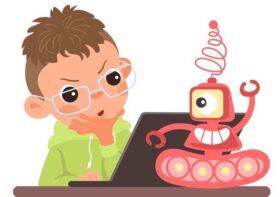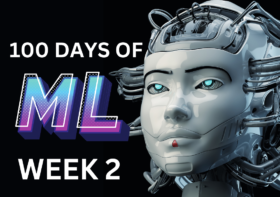The AI Wars Have Begun: Welcome to the desert of the real

If you haven’t been following tech news, this week Microsoft and Google went head-to-head, unveiling their newest AI weapons. Advancements in technology are taking chat-based search to a whole new level, and the feeling of “wow, this definitely could change everything” is completely understandable. However, this change also brings up some important questions that we need to ask ourselves, like how much can we trust artificial intelligence and the companies that they come from?
Table of Contents
ToggleThe Trust Factor in AI-Powered Chatbots
As AI delivers answers and not just information, we are going to have to trust it more deeply than ever before. The new generation of chat-based search engines are designed to give us answers and even provide links to the sources that the answers came from. This means that for these answer engines to be useful, we’re going to have to trust them most of the time and accept the answers at face value.
The same goes for the tools that will help us create text, spreadsheets, code, images, and other things that we do on our devices. Microsoft and Google have promised to offer these tools within their existing productivity services, Microsoft 365 and Google Workspace.
Microsoft and Google’s New AI-Powered Tools
The resources needed to develop and run this technology are massive and so, the companies that control these AI systems will be the largest and richest companies. OpenAI, the creator of the ChatGPT chatbot and DALL-E 2 image generator, is a relatively small startup that has driven major AI innovation. However, even OpenAI has leapt into the arms of Microsoft because of the need for computing power to make its systems work. Now they are striving to make Edge relevant by using ChatGPT to power its Bing search engine.
The Rise of Generative AI
These new technologies and chat-based search are all based on the latest generation of “generative” AI, which can create verbal and visual content, not just process it. This new generative AI technology is set to shift even more power into the hands of the biggest tech companies and insinuate itself even more deeply into our lives and work.
The Power Concentration in AI Technology
This concentration of power is important because AI is incredibly powerful but also flawed. AI has a tendency to deliver incorrect information and so, the first step in making this technology mainstream is to build it and the second step is to minimize the mistakes it makes. Trust in AI will become the new moat that big technology companies will fight to defend. If a company loses the user’s trust, they might abandon the product. For example, Meta created an AI chat-based search engine called Galactica and due to incorrect answers, the engine was shut down after only three days.
The Importance of Responsible AI
On the other hand, being a trustworthy AI could be a more powerful competitive advantage than being the biggest, best or fastest repository of answers. Google has emphasized that it will strive for “Responsible AI” as outlined in its “AI Principles” as it tests and rolls out “Bard”, its own chat-based and generative AI system.
Misleading Information from Chat-Based Search Engines
But why is trust in these kinds of search engines so tricky? If you visit chat-based search engines like You.com or Andisearch.com, you’ll see that even these smaller services can be a little misleading. For example, if you ask You.com’s chat module a question, it will give a reasonably accurate answer, but it might also add complete nonsense to its answer. In my experimentation, You.com would give an answer and then add the name of a search engine that doesn’t exist at all.
The February 10th update for ChatGPT in the US is now offering ChatGPT Plus for $20/month, promising less downtime, priority access to exclusive features, and faster response speeds. Yet, there hasn’t been an update to the false information it will provide so confidently.
The Demand for Professionals in AI and ML
In conclusion, AI-powered chatbots and generative AI technology bring about a new era in the tech industry, offering innovative ways for businesses to interact with their customers and for individuals to access information. However, it’s crucial for these companies to prioritize responsible AI practices to maintain the trust of users. Whether you have coding skills or not, there are numerous ways to break into the tech industry and make a difference. From marketing and design to product management and more, it’s all about finding your niche and pursuing it with passion and dedication. As the demand for AI professionals continues to grow, now is the perfect time to start exploring your options and taking steps towards your tech industry career.



